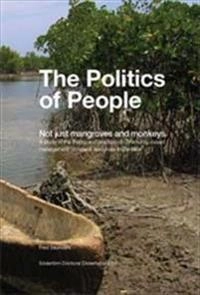

The Politics of people : not just mangroves and monkeys : a study of the theory and practice of community-based management of natural resources in ZanzibarUpplaga 1
- Upplaga: 1a upplagan
- Utgiven: 2011
- ISBN: 9789186069315
- Sidor: 176 st
- Förlag: Södertörns högskola
- Format: Häftad
- Språk: Engelska
Om boken
Åtkomstkoder och digitalt tilläggsmaterial garanteras inte med begagnade böcker
Mer om The Politics of people : not just mangroves and monkeys : a study of the theory and practice of community-based management of natural resources in Zanzibar (2011)
I oktober 2011 släpptes boken The Politics of people : not just mangroves and monkeys : a study of the theory and practice of community-based management of natural resources in Zanzibar skriven av Fred Saunders. Det är den 1a upplagan av kursboken. Den är skriven på engelska och består av 176 sidor djupgående information om miljövård. Förlaget bakom boken är Södertörns högskola.
Köp boken The Politics of people : not just mangroves and monkeys : a study of the theory and practice of community-based management of natural resources in Zanzibar på Studentapan och spara pengar.
Tillhör kategorierna
Referera till The Politics of people : not just mangroves and monkeys : a study of the theory and practice of community-based management of natural resources in Zanzibar (Upplaga 1)
Harvard
Oxford
APA
Vancouver



















